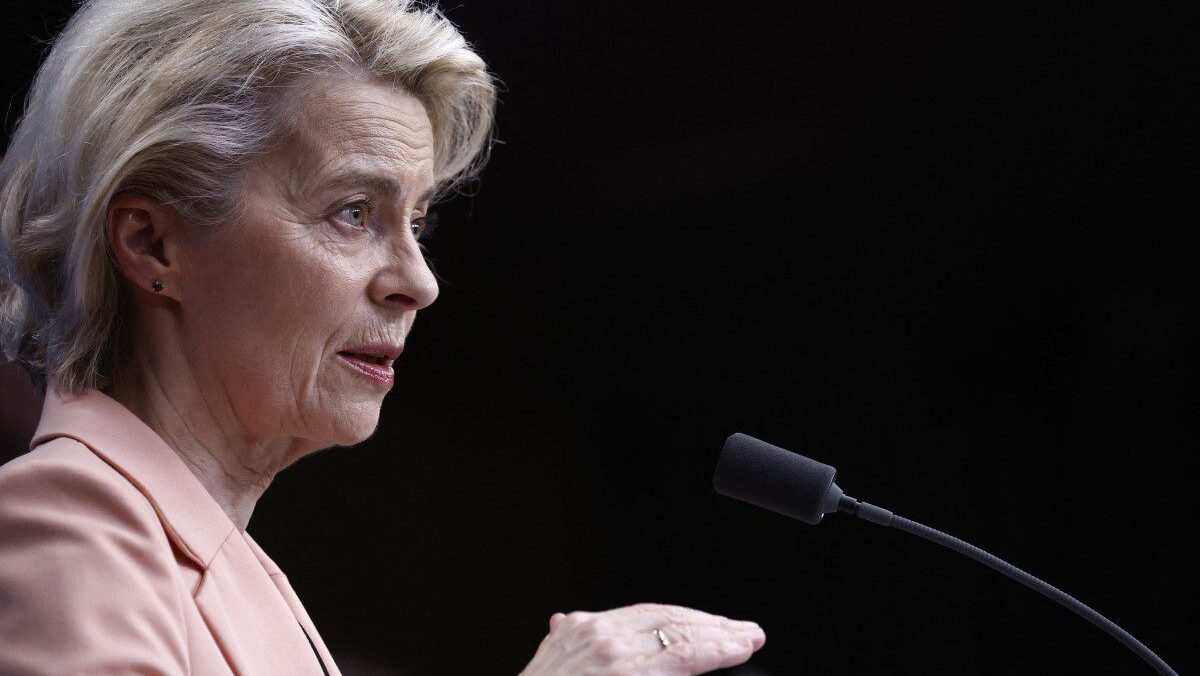
Photo: KENZO TRIBOUILLARD / AFP
A €57 billion ($60.8 billion) military aid package for Ukraine passed by the U.S. Congress on Saturday has sharpened the resolve on both sides of the Atlantic to redouble efforts regarding supporting Ukraine amid rumours of an impending Russian offensive.
Speaking to a gathering of EU foreign ministers in Luxembourg on Monday, Ukrainian Foreign Minister Dmytro Kuleba welcomed the decision by Congress to back the package despite objections from parts of the Republican Party.
According to Politico, European Commission chief Ursula von der Leyen spoke on the phone with President Biden after the vote, pledging to redouble support for Kyiv. “We will stand with Ukraine, as long as it takes, because it’s the right thing to do. And also because the alternative would endanger our own freedom,” von der Leyen said.
Lithuanian Foreign Minister Gabrielus Landsbergis told the press that the infusion of American money “does not remove the pressure from Europe.”
European states are currently being raked over the coals by both the EU and Washington for their perceived failure to share their Patriot air defence systems with a beleaguered Ukrainian army, as Swedish Defense Minister Pål Jonson admitted that ”the trajectory is going in the wrong direction” for Ukraine.
Ukraine supporters fear that the American package for Ukraine could be the last major cash injection before presidential elections in November, with concerns that a Trump administration would focus more on American than Ukrainian financial needs. “The main point is that this funding can probably only help stabilise the Ukrainian position for this year,” warned Matthew Savill of the the Royal United Services Institute.
EU-led attempts to organise the bloc’s defence have been met with eye rolling from both industry member states and even NATO itself, which doesn’t take Eurocrats seriously as it encroaches on its traditional area of defence.
The dash for EU militarisation is heavily backed by President Macron, who is expected to make a landmark Eurofederalist speech about the future of the European project on Thursday, and is additionally being spearheaded within EU institutions by Internal Market Commissioner Thierry Breton.
Poland, Slovenia, Spain, and Denmark have all signalled their opposition to plans for EU-centred rearmament policy, with Copenhagen in particular adamant that defence is the prerogative of NATO, not the EU. Even the Spanish Ministry of Defense declared the idea “unrealistic or unaffordable in the near future.”
The push for EU militarisation is likely to be further incentivised with news that the UK is expected to up its defence spending to 2.5% of GDP announced by Prime Minister Sunak on a state visit to Poland. Ironically, post-Brexit, Britain is increasing its security role on the Continent, specifically in the Baltics, a trend likely to accelerate under a potential Labour government.
Regardless, a proto-EU common defence force is already active, with mixed results, combating Houthi attacks on commercial shipping in the Red Sea.
